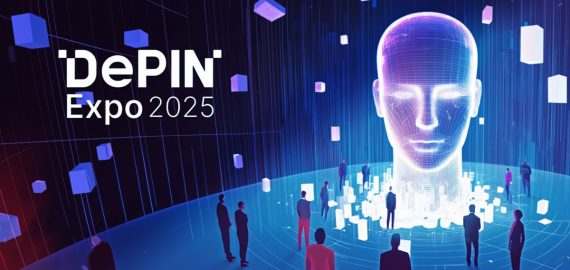10 Best AI Chrome Extensions for Data Scientists in 2023


In Brief
This article introduces a collection of powerful extensions that enhance different aspects of digital tasks. From simplifying technical language to optimizing code, these tools offer innovative solutions.
With these extensions, users can streamline workflows, improve efficiency, and achieve better results in various domains such as scientific research, AI, data scraping, coding, text processing, and more.
This article will examine Best AI Google Chrome extensions, which are already a huge help to data scientists in their work. These extensions address a variety of requirements, including text processing, code optimisation, research support, and thoughtful note-taking.

1. SciSpace Copilot

This tool can answer any scientific query and can elucidate tables, charts, or any other form of data found within scientific papers. In the complex world of scientific research, having a tool that can assist in deciphering intricate data is invaluable. Enter SciSpace Copilot, a tool designed to answer any scientific query and provide clear explanations of tables, charts, and any other form of data within scientific articles.
Whether you are a professional researcher, a student, or a curious reader, SciSpace Copilot can be your guide. It navigates the often complicated language and visual data of scientific literature, providing comprehensible answers and elucidations. This extension can significantly reduce the time and effort spent on understanding complex scientific content, thereby streamlining your research process.
Pros of using SciSpace Copilot:
- Simplifies technical language. SciSpace Copilot provides simplified explanations for jargon, acronyms, and complex paragraphs, making it easier to understand scientific content.
- Enhances learning experience. The tool offers preset questions and allows users to ask their own questions, which can deepen understanding and facilitate learning while reading scientific articles.
- Bookmarking feature. Users can save articles or PDFs to their Copilot collection, allowing them to revisit the content at a later time.
Cons of using SciSpace Copilot:
- Dependency on the tool. Relying solely on SciSpace Copilot for understanding scientific content may hinder the development of independent research and critical thinking skills.
- Language limitations. Although it supports multiple languages, the accuracy and availability of explanations may vary across different languages.
2. Originality.AI Chrome Extension

One of the top services at present is capable of classifying whether a text is human-authored or generated by a neural network. As artificial intelligence increasingly generates human-like text, it becomes challenging to differentiate between content written by humans and that generated by AI. Originality.AI is a tool specifically designed to tackle this problem.
This service, currently one of the best of its kind, can classify whether a piece of text has been written by a human or generated by a neural network. The applications of Originality.AI are vast and range from academic integrity checks and content moderation to ensuring the authenticity of online content.
Pros of using Originality.AI:
- Detect AI-generated content. Originality.AI can help identify content that has been generated by AI models, allowing users to differentiate between human-authored and AI-generated text.
- Maintain academic integrity. The tool can be useful for educators, researchers, and publishers to ensure that the content they encounter or produce is original and not generated by AI.
- Content moderation. Originality.AI can aid in identifying AI-generated content, helping platforms and organizations to enforce guidelines and policies related to user-generated content.
Cons of using Originality.AI:
- Limitations in accuracy. While Originality.AI is advanced, it may not be 100% accurate in distinguishing between human-authored and AI-generated content. False positives or false negatives can occur.
- Contextual understanding. Originality.AI focuses on classifying content based on its origin but may not capture the nuanced context and intent behind the text.
Recommended post: 10 Best AI Chrome Extensions in 2023
3. Data Scraper

An automatic parser that can analyze any website, extract useful data, and save it in either CSV or Excel formats. In the current digital era, valuable information is often hidden in vast amounts of online data. Extracting this information manually can be a time-consuming and complex task.
That’s where Data Scraper comes into play. This tool is an automatic parser capable of analyzing any website, identifying useful data, and extracting it efficiently. Not only does it perform these tasks swiftly, but it also offers the convenience of saving the extracted data in accessible formats like CSV or Excel. This feature allows for easy integration with various data analysis tools and techniques.
Pros of using Data Scraper:
- Data extraction efficiency. Data Scraper can quickly and efficiently analyze websites, saving you time and effort in manual data extraction.
- Wide range of applications. The tool can be used in various fields, such as research, business intelligence, market analysis, and data-driven decision making.
- Customizable data selection. Data Scraper allows you to select and extract specific data points or information based on your needs, providing flexibility in capturing relevant data.
Cons of using Data Scraper:
- Website compatibility. Data Scraper’s effectiveness may depend on the structure and complexity of the target website. Some websites may have anti-scraping measures in place, which could hinder data extraction.
- Legal and ethical considerations. When scraping data from websites, it is essential to adhere to legal and ethical guidelines, respecting the website’s terms of service and privacy policies.
4. Fireflies Chrome Extension

A GPT-4 based assistant that can browse web pages and summarize articles, YouTube videos, emails, and documents. As the volume of digital content continues to expand, sorting through and summarizing information from various sources can become overwhelming. Fireflies, a GPT-4 based assistant, offers a solution to this challenge.
This tool has the ability to browse web pages and summarize a range of content, including articles, YouTube videos, emails, and documents. So, with its advanced AI capabilities, Fireflies can condense information into digestible summaries, allowing you to quickly grasp the key points of the content.
Pros of using Fireflies:
- Content summarization. Fireflies can browse web pages, summarize articles, YouTube videos, emails, and documents, saving you time by providing condensed versions of lengthy content.
- Multi-platform support. The tool works across different platforms and sources, allowing you to extract key insights and summaries from diverse sources in a unified manner.
- AI-driven accuracy. Fireflies utilizes advanced AI algorithms to generate accurate and relevant summaries, enabling you to quickly grasp the main points of the content you encounter.
Cons of using Fireflies:
- Limitations in content understanding. While Fireflies can generate summaries, its understanding may be limited to surface-level information, potentially missing some nuanced or context-specific details.
- Reliance on AI algorithms. The accuracy and quality of the generated summaries depend on the underlying AI algorithms. In some cases, there may be errors or inconsistencies in the summaries provided by Fireflies.
5. Code Squire.AI

This is a code assistant specifically trained for data science tasks. It works excellently with Pandas and other related libraries and supports environments like JupyterLab and Colab, among others. In the world of data science, having an assistant to simplify coding tasks can make a significant difference.
Code Squire.AI is a tool designed for this purpose. Trained specifically for data science tasks, this code assistant excels in working with popular libraries such as Pandas and supports various environments like JupyterLab and Colab. With Code Squire.AI, you can streamline your coding process, reduce errors, and improve the efficiency of your work.
Pros of using Code Squire.AI:
- Data science-focused assistance. Code Squire.AI is tailored specifically for data science tasks, providing targeted support and guidance in coding-related activities relevant to the field.
- Integration with popular libraries. The tool excels in working with data science libraries like Pandas, allowing for seamless integration with your existing codebase and facilitating efficient data manipulation and analysis.
- Compatibility with coding environments. Code Squire.AI supports popular coding environments such as JupyterLab, Colab, and more, ensuring smooth collaboration and utilization across different platforms.
Cons of using Code Squire.AI:
- Limited scope to data science tasks. Code Squire.AI may not offer the same level of support or functionality for other programming domains outside of data science.
- Dependency on specific libraries and environments. While Code Squire.AI excels in working with Pandas and popular coding environments, it may have limited functionality or compatibility with other libraries or coding platforms.
Recommended post: 10+ Best AI Crypto Projects of 2023
6. Sider Chrome Extension

A great tool for text processing. It can explain, translate, summarize, and rewrite any text upon request. Text processing is a common task across various fields, from academia to business and technology. Sider is a tool designed to simplify and enhance this task. It can explain, translate, summarize, and rewrite any text upon request.
By having a tool that can process text in such varied ways, you can save time, enhance your understanding, and improve the quality of your work. Whether you’re dealing with a single document or multiple texts, Sider can help you manage and process your textual data with ease and efficiency.
Pros of using Sider:
- Explanation capabilities. Sider can provide explanations for text, helping to clarify complex concepts, terms, or passages.
- Translation support. The tool can assist in translating text, allowing you to bridge language barriers and work with content in different languages.
- Summarization functionality. Sider can generate concise summaries of text, enabling you to quickly grasp the main points of lengthy articles or documents.
Cons of using Sider:
- Limitations in domain-specific knowledge. While Sider can provide general explanations and assistance, its understanding may be limited to general text processing tasks and may not have specialized knowledge in specific domains.
- Accuracy and context sensitivity. The accuracy and context sensitivity of Sider’s outputs may vary depending on the complexity and nuances of the input text. It is important to validate the results and exercise critical thinking when utilizing the tool.
7. CatalyzeX

Capable of implementing machine learning algorithms according to nearly any article, integrating resources from Google search, ArXiv, and other platforms. Implementing machine learning algorithms based on scientific articles can be a complex and time-consuming task. CatalyzeX offers a solution to this challenge.
This tool can write implementations of machine learning algorithms according to nearly any article, integrating resources from Google Search, ArXiv, and other platforms. This simplifies the process of translating theoretical understanding into practical application. Whether you’re a seasoned machine learning engineer or a student trying to apply what you’ve learned, CatalyzeX can make the process more efficient and accessible.
Pros of using CatalyzeX:
- Algorithm implementation. CatalyzeX can generate code implementations of machine learning algorithms based on scientific articles, saving time and effort in translating theoretical concepts into practical code.
- Integration with research resources. The tool can leverage resources from platforms like Google Search, ArXiv, and other sources to gather relevant information for algorithm implementation.
- Accessibility to cutting-edge research. CatalyzeX allows users to stay updated with the latest research findings and provides a practical pathway to apply those findings in real-world scenarios.
Cons of using CatalyzeX:
- Dependence on article quality. The accuracy and reliability of the generated code implementations depend on the quality and clarity of the scientific articles used as input. Inaccurate or poorly explained articles may result in suboptimal code implementations.
- Limitations of automation. While CatalyzeX streamlines the process of algorithm implementation, it may not capture all the nuances and fine-tuning required for specific use cases. Manual adjustments and optimizations may still be necessary.
8. AIPRM Chrome Extension

AIPRM offers a comprehensive list of such prompts that are well-suited for data scientists and IT professionals in general. These prompts cover a range of scenarios and use-cases, allowing you to tailor your GPT’s responses to suit your specific needs. Whether you’re developing a chatbot, generating text, or training your model for a specific task, AIPRM can provide you with the necessary prompts to guide your model’s responses.
Pros of using AIPRM:
- Structured prompts. AIPRM offers a curated list of prompts that are specifically designed to be effective for GPT models. These prompts can provide a useful starting point for generating desired outputs from the models.
- Support for various application. AIPRM prompts cover a wide range of applications and use cases, making it suitable for data scientists, IT professionals, and anyone working with GPT models.
- Time-saving. With pre-defined prompts available in AIPRM, users can save time and effort in formulating effective prompts for GPT models.
Cons of using AIPRM:
- Model-specific limitations. AIPRM prompts are tailored for GPT models, and their effectiveness may depend on the specific capabilities and limitations of the chosen model.
- Fine-tuning requirements. While AIPRM prompts offer a starting point, fine-tuning and experimentation may be necessary to achieve optimal results for specific tasks or domains.
Recommended post: 20+ Best AI Chatbots of 2023: ChatGPT and Alternatives
9. Codeium

Analyze and optimize your code. It supports over 20 languages and can significantly accelerate your programs. In the realm of programming, writing efficient code is crucial. Codeium is a tool specifically designed to enhance this aspect of coding. This tool can analyze and optimize your code, supporting over 20 different programming languages.
Pros of using Codeium:
- Code optimization. Codeium can analyze your code and provide suggestions to optimize its performance, potentially leading to faster and more efficient programs.
- Multi-language support. Codeium supports over 20 programming languages, allowing you to analyze and optimize code across different programming domains.
- Improved efficiency. By implementing the suggested optimizations, you can enhance the execution speed and resource utilization of your programs.
Cons of using Codeium:
- Learning curve. Getting accustomed to using Codeium effectively may require some learning and understanding of its features and recommendations.
- Context-specific limitations. While Codeium offers valuable code analysis and optimization suggestions, it may not capture the full context or domain-specific considerations required for certain specialized programming tasks.
- Dependency on user implementation. The effectiveness of Codeium’s suggestions relies on the user’s implementation and decision-making in applying the recommended optimizations.
10. Grammarly GO

Smart notes. It understands your context, preferences, and goals, and can provide high-quality to-do lists, notes, recommendations, and drafts. In our fast-paced world, being able to organize thoughts and tasks efficiently is more important than ever. Grammarly GO is a tool designed to help you do just that.
So, this tool goes beyond traditional note-taking apps by incorporating AI to offer personalized assistance, making it an excellent companion for students, professionals, writers, and anyone seeking to organize their thoughts and tasks effectively.
Pros of using Grammarly GO:
- Contextual understanding. Grammarly GO comprehends your context, preferences, and goals, providing tailored suggestions and recommendations for your notes.
- Improved productivity. The tool helps you stay organized and productive by offering high-quality to-do lists, notes, recommendations, and drafts that align with your specific needs.
Cons of using Grammarly GO:
- Learning curve. Getting accustomed to Grammarly GO’s features and understanding how to leverage them effectively may require some initial learning and exploration.
- Dependency on internet connectivity. Grammarly GO is an online tool, so a stable internet connection is required to access its features and functionalities.
- Limited offline functionality. Some features may be limited or unavailable when using Grammarly GO in offline mode.
Conclusion
As seen in this article, the discussed extensions – SciSpace Copilot, Originality.AI, Data Scraper, Fireflies, Code Squire.AI, Sider, CatalyzeX, AIPRM, Codeium, and Grammarly GO – provide a diverse set of capabilities, each with its own strengths and functionalities. These applications cover various domains, including scientific research, AI, data scraping, summarization, coding assistance, text processing, machine learning algorithm implementation, GPT prompts, code optimization, and smart note creation.
FAQs
SciSpace Copilot is a tool that can answer scientific queries and provide explanations for complex scientific language, tables, charts, and more.
Originality.AI is a service that classifies text as either human-authored or generated by a neural network, helping to identify AI-generated content.
Data Scraper is an automatic parser that can analyze websites, extract valuable data, and save it in CSV or Excel formats.
Fireflies is a GPT-4 based assistant that can browse web pages and summarize articles, videos, emails, and documents.
Code Squire.AI is a code assistant traine for data science tasks, offering support for libraries like Pandas and environments like JupyterLab and Colab.
Sider is a tool for working with text, providing features like explanations, translations, summarization, and rewriting.
CatalyzeX can write implementations of machine learning algorithms based on scientific articles, utilizing resources from platforms like Google Search and ArXiv.
AIPRM is a list of well-structured prompts for GPT models, designed to assist data scientists and IT professionals in their projects.
Codeium can analyze and optimize code written in various programming languages, resulting in faster and more efficient programs.
Grammarly GO is a smart note-taking tool that understands context and provides high-quality to-do lists, notes, recommendations, and drafts tailored to individual preferences.
Read more about AI:
- Top 10 Benefits of AI Chatbots for Businesses in 2023
- Top 10 Crypto Research Firms in 2023
- 10 Best AI Apps for iPhones
Disclaimer
In line with the Trust Project guidelines, please note that the information provided on this page is not intended to be and should not be interpreted as legal, tax, investment, financial, or any other form of advice. It is important to only invest what you can afford to lose and to seek independent financial advice if you have any doubts. For further information, we suggest referring to the terms and conditions as well as the help and support pages provided by the issuer or advertiser. MetaversePost is committed to accurate, unbiased reporting, but market conditions are subject to change without notice.
About The Author
Nik is an accomplished analyst and writer at Metaverse Post, specializing in delivering cutting-edge insights into the fast-paced world of technology, with a particular emphasis on AI/ML, XR, VR, on-chain analytics, and blockchain development. His articles engage and inform a diverse audience, helping them stay ahead of the technological curve. Possessing a Master's degree in Economics and Management, Nik has a solid grasp of the nuances of the business world and its intersection with emergent technologies.
More articles

Nik is an accomplished analyst and writer at Metaverse Post, specializing in delivering cutting-edge insights into the fast-paced world of technology, with a particular emphasis on AI/ML, XR, VR, on-chain analytics, and blockchain development. His articles engage and inform a diverse audience, helping them stay ahead of the technological curve. Possessing a Master's degree in Economics and Management, Nik has a solid grasp of the nuances of the business world and its intersection with emergent technologies.


















































